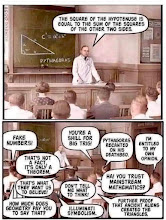There are now important developments in online conflict resolution and peace scholarship.
Indeed, at the disposal of the discerning conflict resolution scholar there is today an online array of tools, which make the mass production of scholarship on how best to cover up the turkish foreign military occupation of Kypros even more easy. For instance:
http://writing-program.uchicago.edu/toys/randomsentence/write-sentence.htm
In this way, the discerning scholar doesn't have to confine himself solely on bombs and tomahawks, new narratives and airfighters, but he may spice up his text with some jucy academic phrases.
Although long free from shame and from the duty to think, scholarship on Kypros was still restrained by the necessity to be typed. With these new online tools, conflict resolution scholars and scholars of anti-nationalism will now only have to insert a few keywords, then receive the outcome on their screens and copy it from there to their articles.
It did not became possible to reach any refugee associations, from Kypros or elsewhere, for comments. But that shouldn't be a problem, because refugees are neither articles or books. No bibliography ever contains people, their emotions and their lives.
We own it to this website for alerting us to these latest developments in online conflict resolution and peace scholarship.
-.

Indeed, at the disposal of the discerning conflict resolution scholar there is today an online array of tools, which make the mass production of scholarship on how best to cover up the turkish foreign military occupation of Kypros even more easy. For instance:
http://writing-program.uchicago.edu/toys/randomsentence/write-sentence.htm
In this way, the discerning scholar doesn't have to confine himself solely on bombs and tomahawks, new narratives and airfighters, but he may spice up his text with some jucy academic phrases.
Although long free from shame and from the duty to think, scholarship on Kypros was still restrained by the necessity to be typed. With these new online tools, conflict resolution scholars and scholars of anti-nationalism will now only have to insert a few keywords, then receive the outcome on their screens and copy it from there to their articles.
It did not became possible to reach any refugee associations, from Kypros or elsewhere, for comments. But that shouldn't be a problem, because refugees are neither articles or books. No bibliography ever contains people, their emotions and their lives.
We own it to this website for alerting us to these latest developments in online conflict resolution and peace scholarship.
-.




